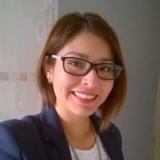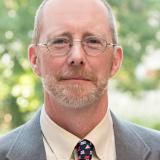The first IES Abroad Global Pillars Faculty Forum was held in Barcelona in July as a three-day event that welcomed 25 participants total across more than 10 IES Abroad Centers and Chicago HQ! The forum gave faculty the space to collaborate, connect, share feedback, discuss the benefits and growth their students have experienced because of the course, and discuss the future development around the Designing the Sustainable City course. This was the first time that the faculty of the course across Centers were able to all meet in person.
The Global Pillars Forum through Our Faculty's Eyes


What are Global Pillars?
Our Global Pillars are part of our Global Good Commitment. Drawn from the UN’s Sustainable Development Goals, our Global Good Commitment is a multifaceted approach to creating a more sustainable and just world grounds who we are and what we do within four key categories:
- People & Equity
- Education, Academics, Curriculum, & Career-Readiness
- Engagement & Resources
- Sustainable Operations & Services
Global Pillars are connected to the Academics category of our Global Good Commitment. We are dedicated to developing courses, curriculum, experiential learning, and co-curricular programming rooted in sustainable practices in alignment with our three Global Pillars: Sustainable Living, Equitable Living, and Human Wellbeing. We introduced ES/SO360 - Designing the Sustainable City course, which is designed to provide students the opportunity to engage in a multi-disciplinary and multi-cultural learning community that addresses a global issue.
"Designing the Sustainable City" Course
The Designing the Sustainable City course has gained popularity and interest very quickly given the importance of sustainability worldwide. The course was piloted at three Centers (Barcelona, London, Milan) with 16 students in Spring 2022, and there are now 11 participating Centers (Barcelona, Berlin, Buenos Aires, London, Madrid, Nice, Santiago, Tokyo, Cape Town/Milan Vienna). Given the success and importance of the course, there’s plans for expansion so that more students can benefit from the meaningful coursework.
As part of the course, students are asked to identify the most pressing sustainability issues in their host city. Working in small teams and conducting hands-on field research, they offer solutions to the issues they have identified at the local level, taking into account the environmental, historical and social characteristics of their host city.
Beyond the classroom, students gain firsthand experience in the field including:
- Learning from people working in other locations about their problem-solving experiences with sustainability solutions.
-
Presenting their ideas to policy makers and sustainability experts in a range of fields and integrate these experts’ advice into their designs.
-
Working collaboratively with international teams.
-
Differentiating between realistic and unrealistic goals for sustainability solutions.
-
Analyzing the successes and failures of sustainability initiatives in other locations.
The students also earn micro-credential in Sustainability and Development that will demonstrate their sustainability literacy and ability to find innovative solutions to complex problems.
“Since the beginning, we wanted students to have a rather broad understanding of what sustainability is in terms of the kind of scope it allows people to analyze any kind of issue.”Alejandra Calleros-Islas | IES Abroad Faculty, Barcelona
Highlights From the Global Pillars Faculty Forum
The three-day event focused on the past, present and future of the Global Pillars initiative:
Day 1
- Participants learned about the origins and inspirations of the Global Pillars initiative and its relevance to current and future generations of students.
- The group visited a local association (Mescladis) that expertly weaves the UN SDGs into its core mission.
- The day ended with a guided tour of Barcelona that showed the 19th century city plan aimed to tackle the appalling conditions of the city, and then featured the city’s latest efforts to create “streets of the 21st century” by transforming high traffic areas into walkable green spaces.
Day 2
- Participants worked on definitions, guidelines and best practices of the course and they heard from Cristina Lopez about available tech support and tools that can further elevate the students’ final projects.
Day 3
- This was an opportunity for participants to consider the future of this initiative and in particular how IES Abroad can ensure that the project is sustainable and scalable. The group focused on growth, promotion, and scholarship.
“The whole group of us are here to take the next steps in designing this course, see what's working, what isn't, and troubleshoot. Working out the logistics is a great challenge. It’s a pretty intense course, and you only have these students for one term, usually. They're also from many different sorts of universities. So, how do you make the course cohere quickly and move forward across several Centers? I think that's really the impressive aspect of what this team here is doing. They’re laying the foundation to expand this course into a truly unique study abroad experience. It is humbling and”Mark Rush, Ph.D. | IES Abroad Chair of the General Council & Academic Council Member| Director of International Education and Stanley D. and Nikki Waxberg Professor of Politics and Law, Washington and Lee University
All faculty participants agreed that the greatest highlight of the three days was meeting their colleagues from around the world, especially fellow faculty who are teaching the course at other Centers. This was an opportunity to gauge feedback, hear stories, and gain a deeper understanding of best practices around the Designing the Sustainable City course. In turn, this offered valuable insight to the impact of the course, as well as how it can be enhanced and scaled.
Most importantly, the faculty felt supported, inspired, and more committed than ever to the initiative and are enthusiastic to be part of this dynamic and passionate learning community.
Why "Designing the Sustainable City" Matters
Exposing students to sustainability practices around the world provides them the skills and experience to be the sustainably minded global citizens our future needs, which ties into why we developed the course. The course offers students a quality academic experience and is important for their overall learning and career path.
“When the students leave here and go back home, they will have been exposed to the idea that there are global challenges out there that all of us need to address, and they can be part of the solution. They shouldn't only be looking up to professors, experts, or government to solve these global challenges - all of us can be a part of the solution.”Michael Adewumi, Ph.D | IES Abroad Executive Vice President for Academic Affairs and Provost
Learn more about our Global Good Commitment.




